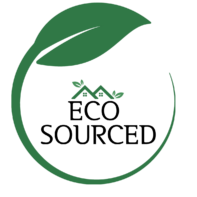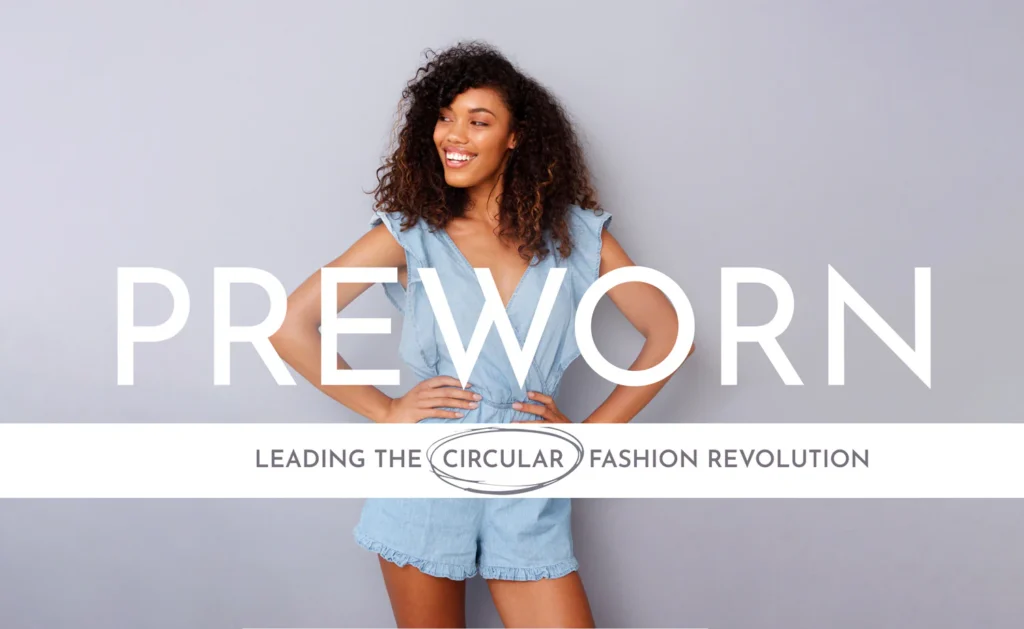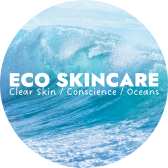Eco Sourced recommends Meaningful Planet, Eco Bravo, Preworn, and Eco Skincare for sustainable mobile data plans and affordable, eco-friendly, recycled and plastic-free products that help restore nature.
Sustainable Living: More Than Just a Trend
In 2024, the momentum toward sustainable living continues to soar as more people become aware of the environmental impact of their choices. From personal care to household essentials, consumers are increasingly drawn to products that are not only beneficial for them but also for the planet. In this article, we’ll dive into the diverse categories of sustainable products that are reshaping our daily lives.
Welcome to the very first article of the Eco Sourced Blog! We’re thrilled to embark on this journey with you, sharing our passion for sourcing the best quality sustainably and ethically crafted products. Our mission is to equip you with the knowledge to chose products that embrace a lifestyle that embodies sustainable living. Whether you’re taking your first steps toward a greener way of life or seeking to deepen your commitment, we’re here to guide you every step of the way. From making informed choices to shopping smarter and living more sustainably, consider Eco Sourced your go-to hub for actionable insights and inspiring ideas that put the planet first. Let’s make a positive impact together!
Choosing Sustainable Products
Ethical and eco-friendly products come in all shapes and sizes, each making a vital contribution to sustainable living. In this exploration, we’ll dive into the many categories of these products, offering you a clear picture of how your choices can benefit both the planet and society. Our goal is to help you understand how every eco-conscious decision you make can spark a positive change, making a real difference in the world.
1. Eco-Friendly Personal Care
Organic and eco-friendly personal care products are more accessible than ever. Brands are focusing on using natural ingredients free from harmful chemicals such as benzophenone, octinoxate, mica, parabens, and sulphates. Hair care products featuring plant-based oils, organic herbs, and biodegradable packaging are on the rise. Body lotions, scrubs, and deodorants made from organic butters and essential oils not only nourish the skin but also reduce environmental impact. Searching for brands that prioritise cruelty-free testing and sustainable sourcing, will ensure that your beauty regimen is as kind to the earth as it is to your body. In future articles Eco Sourced Blog will cover topics on sustainable skincare routines and DIY eco-friendly products for daily use.
2. Ethical and Eco-friendly Fashion
The fashion industry is undergoing a significant transformation towards sustainability in 2024. Consumers are increasingly opting for clothing made from organic cotton, hemp, and recycled materials. Some brands are starting to embracing eco-friendly practices, like reducing water usage and employing ethical labour standards. Shoes crafted from biodegradable materials and accessories made from recycled plastic waste and other resources are gaining popularity. Vintage and thrift shopping is also becoming a mainstream choice, promoting a circular economy and reducing waste. By choosing sustainable fashion, you can make a statement while protecting the planet. Our articles will highlight sustainable fashion brands, tips for a minimalist wardrobe, and the environmental impact of fast fashion.
3. Ethical and Eco-friendly Electronics and Gadgets
In a world driven by technology, the demand for ethically and ecologically made electronics is gaining traction. Consumers are becoming more aware of the environmental impact of electronic waste and are seeking products designed for longevity and recyclability. Brands should therefore focus on using sustainable materials in their gadgets and ensuring ethical labour practices in production. From energy-efficient appliances to modular smartphones that can be easily repaired, the market is demanding a shift toward a more sustainable approach. By investing in eco-conscious electronics, consumers can enjoy the benefits of technology without compromising the planet’s health. Eco Sourced Blog will keep an eye out for brands that make a genuine effort to track their supply chains, ensuring that ethically and ecologically sourced raw materials become the standard in the manufacturing of electronics and gadgets.
4. Eco-Friendly Household
Transitioning to eco-friendly household products can significantly reduce a home’s ecological footprint. Cleaning supplies made from plant-based ingredients and packaged in recyclable materials are becoming more popular. From biodegradable sponges to refillable spray bottles, these products reduce plastic waste and harmful chemical exposure. In the bathroom, organic soaps, shampoos, and toothpaste in compostable packaging are gaining traction. Kitchen items, such as beeswax wraps, stainless steel and bamboo containers, are perfect for reducing single-use plastics. By choosing sustainable household products, your family can create a healthier living environment while minimising their carbon footprint. Eco Sourced Blog topics will include everything from biodegradable cleaning products to energy-efficient appliances, shedding light on how small changes at home can contribute to larger environmental benefits.
5. Eco-Friendly Pets
Caring for pet friends should not come at the expense of the environment. Pet owners are increasingly aware of the environmental impact of their pets’ needs. In 2024, organic pet food, made from ethically sourced ingredients, is a top choice for health-conscious pet parents. Biodegradable waste bags, eco-friendly toys, and natural grooming products are also gaining popularity. Many brands now offer sustainable pet accessories, such as leashes and collars made from recycled materials. By opting for eco-friendly pet products, owners can ensure their pets lead healthy lives while also being kind to the planet. Eco Sourced Blog will discuss eco-friendly pet foods, biodegradable waste bags, and sustainable pet toys, ensuring that even our pet companions can contribute to a more sustainable lifestyle.
6. Sustainable Gardening
Gardening enthusiasts in 2024 are embracing eco-friendly tools and equipment to cultivate their green spaces. Organic fertilizers, compost bins, and natural pest control methods are essential for sustainable gardening. Tools made from recycled materials and ergonomic designs are widely available, making it easier for gardeners to work efficiently. Watering systems using drip irrigation and rainwater harvesting are becoming more popular, helping conserve water. Even lawn mowers and leaf blowers are transitioning to electric or battery-powered options, reducing emissions and noise pollution. Sustainable gardening practices not only enhance the environment but also promote biodiversity. This category will provide guidance on composting, using native plants, and creating a wildlife-friendly garden, encouraging readers to nurture their green spaces responsibly.
These categories represent the core areas where individuals can make impactful changes for a healthier planet. By exploring each, we aim to empower our readers with the knowledge to make informed, sustainable choices.
7. Ecologically and Ethically Sourced Foods
The demand for ecologically and ethically sourced foods continues to rise as consumers become more conscious of their food choices. Organic farming supports biodiversity, improves soil health, and reduces pollution. Organic produce, free from pesticides and artificial fertilizers, are increasingly available at local markets. Additionally, brands that prioritize fair trade practices and support local farmers are poised to keep winning over consumers. Plant-based alternatives and products with minimal processing are gaining traction, promoting healthier diets and sustainable agriculture. By choosing ecologically sourced foods, consumers can support sustainable farming while enjoying nutritious meals. Our blog will cover topics such as locally-sourced produce, the benefits of organic food, and tips for reducing food waste.
Benefits of Choosing Sustainable and Ethical Products
Choosing sustainable and ethical products offers a wealth of benefits that extend far beyond individual satisfaction. Environmentally, these products contribute to reduced pollution and the conservation of valuable resources. When consumers prioritise sustainably crafted items, they help decrease the demand for resource-intensive manufacturing processes and lower carbon footprints. For instance, opting for clothing made from organic cotton or recycled materials over conventional fabrics can significantly reduce water usage and soil contamination.
On a social level, the benefits of sustainable and ethical choices are equally profound. These practices ensure fair labour standards, meaning that the workers involved in producing these goods receive reasonable wages and work in safe conditions. This not only supports human rights but also elevates the standard of living for communities around the world. Additionally, buying from companies that emphasize ethical production often means supporting small businesses and local artisans, which can invigorate local economies and promote cultural sustainability.
Concrete examples illustrate the impact of these choices. For instance, the Fair Trade movement has enabled thousands of farmers in developing nations to access equitable prices and community development funds. Similarly, companies like Patagonia showcase how commitment to sustainability can lead to corporate success and environmental stewardship. Their use of recycled materials and program to repair worn clothing highlights a business model that prioritises long-term environmental health over short-term profits.
On a global scale, these individual choices coalesce into collective action that drives significant change. By choosing sustainably and ethically crafted products, consumers leverage their purchasing power to advocate for a cleaner, fairer world. This not only benefits the planet and its inhabitants today but also ensures a sustainable future for generations to come.
How to Identify and Source Ethical Products
Identifying and sourcing ethical products requires a combination of careful attention to labels, understanding relevant certifications, and thorough research into companies’ sustainable practices. As consumers become increasingly aware of the importance of ethical shopping, the demand for clarity and transparency has grown. Here are some key tips to help guide you with the process. First, focus on reading labels carefully. Look out for terms like “fair trade,” “organic,” “recycled,” or “biodegradable.” These terms often indicate a more ethical approach to production. Additionally, check if the product lists specific certifications such as Fair Trade Certified, BAFTS, or B Corp . These certifications are generally reliable indicators of ethical practices.
Understanding these certifications is crucial. Fair Trade Certified products ensure that producers receive fair wages and work under safe conditions. Organic certifications indicate that the product is produced without synthetic pesticides or fertilizers, promoting better environmental health. The B Corp certification recognizes companies that meet high social and environmental performance standards, accountability, and transparency.
Researching companies’ sustainable practices can uncover much about their commitment to ethical products. Many companies now publish sustainability reports detailing their practices, goals, and the progress they are making toward more ethical production. Visiting a company’s website often provides insights into their sourcing, manufacturing processes, and social responsibility efforts.
For those looking for trustworthy brands, several reputable companies stand out. Brands like Patagonia, Eileen Fisher, Dr. Bronner’s, Meaningful Planet and Eco Bravo have well-established commitments to ethical and sustainable practices. Websites such as Good on You and Ethical Consumer offer extensive databases of companies rated on their ethical credentials, making it easier to make informed choices.
Despite the increasing availability of ethical products, challenges and misconceptions remain. One common misconception is the belief that sustainable shopping is always more expensive. While some ethical products may carry a higher upfront cost, they often offer superior quality and durability, leading to longer-term savings. Additionally, starting with small, incremental changes can make ethical shopping more manageable. Gradually replacing non-ethical products with sustainable alternatives—starting with everyday items such as toiletries and household goods—can lead to significant impact over time.
Encouraging incremental changes and educating oneself about sustainable practices can make a substantial difference. Ethical shopping is an evolving journey; with conscious effort and informed choices, consumers can contribute to a more sustainable and equitable world.









